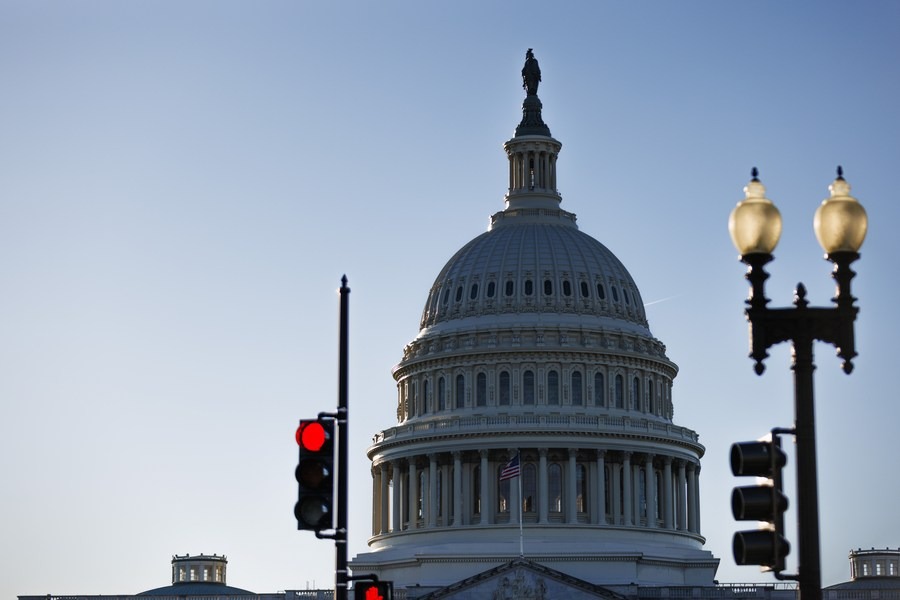Singles Day success offers lessons for US businesses
Scholar calls for focus on vast potential of solo economy, such as travel, housing

China's "Singles Day" — the world's largest retail festival, which ended on Nov 11 — has prompted a United States marketing professor to urge US businesses to follow its lead and tap into what he calls the country's "most overlooked" consumer group: singles.
Originally a tongue-in-cheek counter to Valentine's Day, the event takes place on Nov 11 — a date of four "bare sticks", a Chinese slang term for single people. Over the years, Singles Day, or Double 11, has grown into a global retail phenomenon, generating $202 billion in sales during last year's session, according to data provider Syntun.
This year, Chinese e-commerce platforms such as Alibaba and JD.com stretched the shopping bonanza from Oct 9 to Nov 11 — its longest run ever — and widely deployed AI to boost efficiency, personalize recommendations and provide real-time assistance.
In just the first two hours, Apple's Tmall store sold more iPhones than it did over the entire day a year earlier. Within five days of the event's kickoff, JD.com reported a 300 percent jump in apparel imports. Disney-branded pet toy sales went up 114-fold, with orders for home appliances and smartphones rising more than 70 percent year-on-year.
"Singles Day is a $150B holiday in China; marketing prof believes it will catch on in the US", read a headline on the University of Colorado Boulder's website.
Peter McGraw, a professor of marketing and psychology at the university, approached Singles Day largely through its literal origins as a celebration of singlehood — focusing on the demographic and social forces that have made it possible — in both his article and his interview with China Daily.
His discussion centered on the rising singles population, which he said makes up nearly half of US adults — and the emerging "solo economy", even though the festival in China has long expanded beyond its roots to become a nationwide — and global — shopping carnival for consumers of all kinds.
"Singles Day emerged at a unique intersection of social shifts and economic opportunity," McGraw said. "Add in a rapidly expanding middle class, a dominant e-commerce infrastructure and a playful, digitally savvy youth culture, and you have the perfect conditions for a cheeky holiday to become a national — and then global — shopping phenomenon."
The US is less clear-cut, he said, as culturally it has not embraced singlehood with the same visibility.
Still, the deeper conditions that fueled Singles Day in China are increasingly visible in the US, as people are living longer, spending more years single by choice, and a growing share are never marrying at all, he said.
"The emotional and economic logic of the solo economy is already unfolding, though when and how far it goes remains to be seen."
However, replicating China's 11/11 phenomenon in the US would not be straightforward, McGraw said, noting that the biggest obstacle is timing. Nov 11 is Veterans Day — "a solemn national holiday" — making it an unlikely candidate for a lighthearted celebration of singlehood or consumption.
If a US version were to emerge, "it would likely need a new date — something like Nov 1 (11/1), which still carries the symbolic 'ones' and kicks off the month cleanly", he said.
The US' already packed discount calendar poses another challenge. With Black Friday, Cyber Monday and Prime Day bookending November, there is little room left for another shopping event.
'Emotional hook'
For any Singles Day equivalent to take hold, McGraw said, it would need to offer more than discounts — it would require "an emotional hook", perhaps a celebration of autonomy, self-investment or treating oneself.
Still, McGraw said he believes the US will follow suit, "whether reluctantly or enthusiastically". Early signs could include discount codes for singles, themed product drops and "treat yourself" messaging that frame single living as aspirational, he said, adding the real shift would occur when a major retailer decides to claim the date.
"If just one of them builds a campaign around it, the rest will follow."
He also sees a broader lesson for US companies: singles are not a fringe group but "one of the most overlooked — and fastest-growing — consumer segments" with diverse goals.
To tap this market, companies must design products and experiences that reflect solo living — from travel and housing to financial services, he said. "The commercial opportunity is there. It will succeed only if it taps into something deeper than a flash sale."
While McGraw interprets Singles Day largely through its origins in singlehood and the rise of the solo economy, others see the event in much broader terms.
Frank Calvino, an editor at Cross-Border Magazine, said Double 11 should not be seen as simply China's Black Friday, but as "a mirror of China's consumer culture, a laboratory for retail technology and a strategic opportunity for global brands".
For Western audiences, understanding Double 11 is a way to understand "the future of digital commerce" — one that is increasingly personalized, interactive and borderless, Calvino wrote in a post on Nov 3.
Although an increasing number of global brands — from Nike to Apple — now have a strong presence on China's major e-commerce platforms and reap huge Singles Day sales, US consumer awareness of the event remains low.
According to a survey conducted late last year, less than 20 percent of consumers in the US were at least somewhat aware of what Singles Day is. Only about 5 percent said they knew the shopping event well, according to statista.com.
huanxinzhao@chinadailyusa.com
































